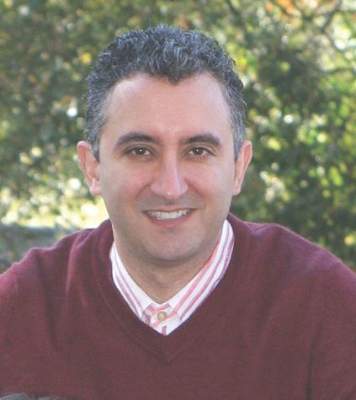In the classic funeral oration of Julius Caesar, just murdered by the Republican clique of Marcus Brutus, Shakespeare has the ambitious Marc Antony proclaim: “Friends, Romans, countrymen, lend me your ears. I come to bury Caesar, not to praise him. The evil that men do lives after them, the good is oft interred with their bones.”
In the case of the recently dead, Shakespeare put the truth in reverse: We are loath to criticize those who are no longer around to defend themselves. But, as John Adams noted in his personal correspondence with Thomas Jefferson, there is a harmful aspect to postmortem panegyrics – an “abuse of grief” by which we distort the past for our own present purposes. So, Adams exclaims, “the scoundrel Mark Anthony [sic] availed himself of this momentary grief to destroy the republic … .”1
For the past half-year, we have been subject to legions of Antony-esque accolades to Robert Spitzer, the head of the third revision of the DSM (DSM-III). The most recent, in this website, was “a personal tribute” by Dr. Daniel J. Carlat. I never knew or even met Dr. Spitzer, so I write with no personal tug of emotional empathy for the man, but instead as an anti-Antony might speak, in forthright recognition of fact from the impersonal perspective of another generation.
The professional question is as follows: Have DSM-III and its successors helped or harmed the profession and patients?
The prior encomium used the example of major depressive disorder (MDD), the criteria of which were said to be more correct than prior definitions; the question was raised how Dr. Spitzer and his colleagues selected a cut-off of five depression criteria to define a “major” depressive episode. The story was that he simply said that six “seemed like too much,” and four “seemed like not enough.” The author praised Dr. Spitzer’s “honesty” in being frank about the limited amount of science that came into play, instead of showing any consternation that our leaders are frankly unconcerned about being unscientific. We need less hagiography and more honesty about the harmful impact of this attitude.
The claim with the DSM-III was that we would establish a “dictionary”; at least we could agree on definitions (reliability), which we could revise with future diagnostic studies to get closer and closer to reality (validity). Reliability was a way-station to validity. In fact, we have neither.
Those “precisely defined” MDD criteria, which are almost entirely unchanged since 1980, have low reliability, and now are even less reliable in the DSM-5 field trials2 (a kappa score of 0.32, which is in the “questionable” range) than they had been with the DSM-III field trials. The fact that they have changed hardly an iota in almost 4 decades is the antithesis of science: the criteria that Dr. Spitzer admits to more or less inventing in 1980 aren’t subject to scientific refutation, because we’re so committed to them. Or, if they are tested, we engage in an unscientific process of requiring more and more data to make fewer and smaller changes in the DSM ideology.3 This Sisyphus-like principle has been admitted explicitly by the leader of the DSM-IV, who calls it “pragmatism,” and states clearly that science is a much-lower criterion for making changes in the DSM system.4 We haven’t appreciated that this benign neglect of science in the DSM sausage-making process isn’t benign: If we make up diagnoses based on our professional preferences, why should genes or biological markers or pharmacologic mechanisms or even psychotherapies follow suit? Scientific progress in research is doomed when we define our clinical phenotypes unscientifically.5
In essence, the DSM-III and its successors are “social constructions”: inventions of the leadership of the profession, based on what they believe is in the best interest of everyone else; they are not based primarily on our best scientific data.
In his later years, Dr. Spitzer admitted this legacy without much ambivalence.
That lack of ambivalence itself is the ambivalent legacy of that generation of psychiatric leaders.
Dr. Ghaemi, professor of psychiatry at Tufts University, Boston, and director of the Mood Disorders Program at Tufts Medical Center, is author of many books, most recently “On Depression: Drugs, Diagnosis, and Despair in the Modern World” (Baltimore: Johns Hopkins University Press, 2013), and “A First-Rate Madness: Uncovering the Links Between Leadership and Mental Illness” (New York: Penguin Press, 2011), and more than 200 scientific articles. He also is editor of The Psychiatry Letter, a monthly newsletter.
References
1. Braden, B. (Editor). “ ‘Ye Will Say I Am No Christian’: The Thomas Jefferson/John Adams Correspondence on Religion, Morals, and Values ” (Amherst, N.Y.: Prometheus Books, 2006).
2. Regier, D.A.; Narrow, W.E.; Clarke, D.E.; Kraemer, H.C.; Kuramoto, S.J.; Kuhl, E.A.; Kupfer, D.J. “DSM-5 field trials in the United States and Canada, Part II: test-retest reliability of selected categorical diagnoses” ( Am J Psychiatry. 2013 Jan;170[1];59-70 ).
3. Ghaemi, S. “DSM-5 and the miracle that never happens” ( Acta Psychiatrica Scand. 2014 Jun;129[6];410-12 ).
4. Frances, A. “Pragmatism in Psychiatric Diagnosis” ( Psychology Today. 2013 Jan 11 ).
5. Ghaemi, S. “Taking disease seriously in DSM” ( World Psychiatry. 2013 Oct 12;12[3];210-12 ).



